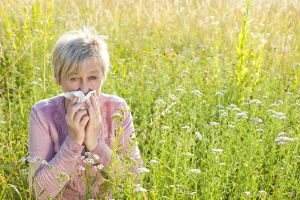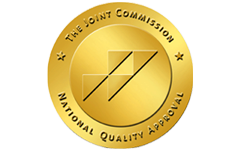Allergy season is coming and allergy sufferers will be experiencing itchy eyes and stuffy noses. Here is a Spring allergy guide, with strategies to help you get through it.
- If you have allergy signs, like sneezing, runny nose and watery eyes, go to your doctor. Your doctor may order medications to help you feel better.
- If you suffer from asthma and allergies, keep your doors and windows closed in the spring months; this helps to keep allergens out. An air purifier may also help. When running the air conditioner, be sure to change the filter per manufacturer’s directions.
- Wash your hands and take off your jacket when you come home to help get rid of the pollen.

- Clean vents and any places where pollen or dust may pile up.
- Dust, mold, animal dander and cigarette smoke are common allergens. Stay away from them.
- Consider allergy-proof covers for your mattress and pillows as the keep away dust mites.
- If you have pets, create a pet-free area in your home. It’s never so important to give your pet a bath as it is in the Spring.
- Don’t stop to smell the flowers. Sniffing a daffodil or tulip could aggravate your symptoms. Fragrances and pollen are most likely to make you sneeze.
- Wash your hair frequently as your hair is a pollen magnet. Take care not to pollinate your house when you go indoors. If you fall asleep with pollen in your hair, it will attach to your pillow, potentially causing night time allergy flare-ups. Wash your hair before you go to bed at night, so pollen is not right next to your nose where you are inhaling it. Change your pillow case often and wash bed linens at least once a week.
- Don’t line dry. Hanging laundry outside is a surefire way to capture allergens. Pollen will easily stick to linens, towels and whatever else in on the line. If you like to air dry, do so indoors.
- Vacuum once or twice a week – Vacuuming helps keep indoor allergens to a minimum. If you have a vacuum filter, make sure that it is clean and replaced as necessary.
- Eat right. You can help fight allergies with your diet. Vitamin-C rich foods have been known to unblock sinuses, so load up on oranges, kale, broccoli and brussel sprouts. Black tea, green tea, apples, red onions and berries have been shown to inhibit the release of antihistamines, which trigger itching, sneezing, a runny nose, and watery eyes. Pineapple and papaya contain a mixture of enzymes thought to improve season allergy symptoms.
- Wear sunglasses. Wearing oversized glasses can block pollens from getting into your eyes and eyelids.
- Stay indoors as much as possible, especially until after 12 p.m., since plants typically pollinate in the early-morning hours. The highest pollen levels are typically recorded on warm, dry and windy days, while the lowest are on windless, wet and cloudy days.
- Maintain the dog. When the dog frolics in the grass, he collects allergens like mold and pollen. Wash his paws before allowing him back into the house.
- Last, but not least, leave your shoes at the door. It is not just the dog who tracks allergens in the house. Pollens can hitch a ride inside or on shoes, so take them off before stepping indoors or immediately upon entry.


